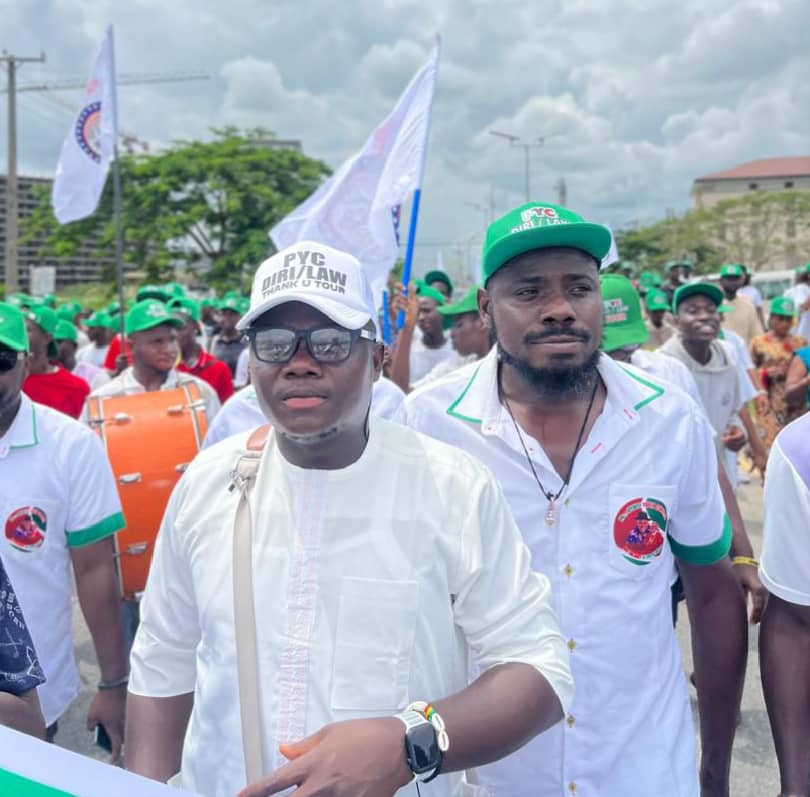A former legal adviser of the Ijaw Youth Council, Barrister Ayebakuro Igbeta, has issued a strong call to the Supreme Court of Nigeria and the wider judiciary to take decisive action against what he described as unconstitutional and dangerous abuses of power by the Federal Government in its handling of the Rivers State crisis. In a statement released on Friday, September 19, 2025, Igbeta argued that the suspension of Governor Siminalayi Fubara and the Rivers State House of Assembly during the declaration of a state of emergency earlier this year amounted to “executive rascality” and a fundamental violation of the Constitution.
According to Igbeta, the actions of President Bola Ahmed Tinubu’s administration, supported by the National Assembly, represented a deliberate bending of the will of the Rivers people to serve the interests of a few powerful actors. He described the move as one that betrayed the principles of democracy and pushed Nigeria towards anarchy and brute force rather than constitutional governance. He warned that if left unchallenged, the precedent could threaten the entire democratic framework of the country.
The controversy began when the Federal Government declared a state of emergency in Rivers State and announced the suspension of both Governor Fubara and the State Assembly, citing security and governance concerns. Igbeta acknowledged that Section 305 of the Nigerian Constitution empowers the Federal Government to act in extreme cases to ensure peace and order, but he stressed that the specific path chosen by the Tinubu administration fell outside constitutional limits. He emphasized that the Constitution makes no provision for suspending an elected governor or a legislative body.
Igbeta pointed out that Section 180 of the 1999 Constitution clearly defines how a governor’s office may become vacant—through death, resignation, impeachment, or expiration of tenure—but does not provide for suspension. He also noted that Section 91 guarantees the existence of state assemblies, while Section 105 outlines conditions for their dissolution, meaning that the arbitrary suspension of Rivers State’s legislature had no legal backing. He described the move as a deliberate usurpation of the people’s mandate.
The lawyer highlighted several past Supreme Court judgments that affirmed the supremacy of the Constitution and struck down unconstitutional government actions. He referenced Attorney-General of Bendel State v. Attorney-General of the Federation as a case where the court reaffirmed that any act inconsistent with the Constitution must be void, and Inakoju v. Adeleke, where an unlawful impeachment process was invalidated. He further recalled the landmark Amaechi v. Omehia case of 2008, in which the Supreme Court delivered a bold decision to preserve democratic integrity, even though the ruling was seen as unusual at the time.
Although the state of emergency in Rivers has since been lifted and Governor Fubara reinstated, Igbeta argued that the damage done to Nigeria’s democracy requires a firm response from the judiciary. He urged the Supreme Court to deliver a strong ruling declaring that the Federal Government had no constitutional authority to suspend a governor or state assembly, even under emergency conditions. He maintained that such a declaration has become a national necessity to prevent future executive overreach.
Igbeta expressed concern that the Rivers State incident was merely a test run for wider political manipulation and warned that Nigeria itself could be the “ultimate prize” for those seeking to subvert democracy. He called on the judiciary to act with courage, fairness, and fidelity to the Constitution, stressing that silence in the face of such violations would encourage future abuses.
“Nigeria’s democracy is fragile, but it is not helpless,” Igbeta stated. “What we cannot afford is silence in the face of blatant constitutional violations. The Supreme Court must act—not only for Rivers people, but for all Nigerians who still believe that the ballot, and not the bayonet, is the true instrument of governance.”
Igbeta’s appeal underscores growing concern among legal and political observers that the events in Rivers State could deepen Nigeria’s democratic crisis if the judiciary fails to step in decisively. His warning reflects a broader fear that unchecked executive power may destabilize the country’s democratic institutions if urgent corrective measures are not taken.





